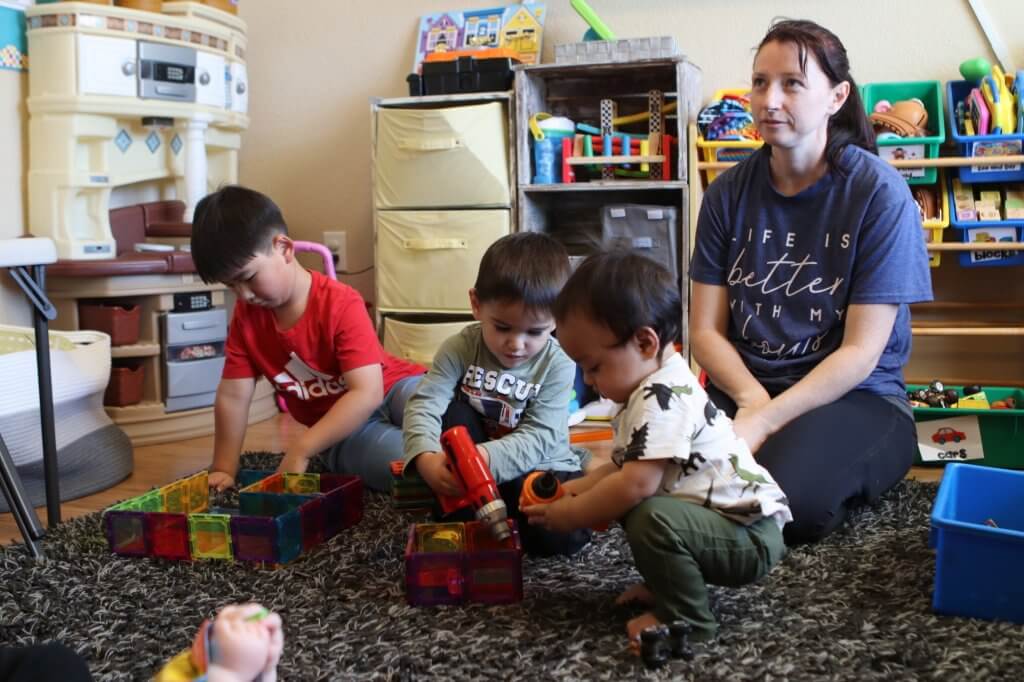The National Guard is no longer “one weekend a month, two weeks a year.” And hasn’t been for some time, according to Army Maj. Gen. Eric K. Little, director of National Guard Bureau Manpower and Personnel, which was taken into consideration when launching a child care pilot program earlier this year.
“Taking care of our soldiers is our No. 1 priority,” Little said during a media roundtable in early September, noting that weekend child care “continues to be topic of discussion.”
The Guard budgeted $3.6 million for the first wave of the pilot program, which is funded through federal appropriations. The six participating states – Massachusetts, New Hampshire, New Mexico, Ohio, Virginia and Washington – are not contributing funding. There’s also no cost for the guardsmen using the service.
The pilot began Sept. 1 for guardsmen in good standing under the following requirements:
- Available to single and married soldiers.
- The soldier’s spouse or significant other must also be scheduled to work during the drill weekend.
- A maximum rate of 12 hours.
- Children must be between 6 weeks and 12 years old.
Current National Guard Bureau data shows that 35% of Army National Guard service members have children, and 9% are single parents.
A lot of feedback the Guard has received regarding child care comes from surveys and full-time family readiness personnel.
RELATED: Army Reserve tries offering free child care during drill weekends to boost retention
“If you’re a single parent or even a married parent, is it’s just a challenge,” he said, “being gone for drill weekend. Nowadays, drilling location is not as close to the home of record as it used to be back in the day.”
However, Nadine Moore, family readiness branch chief, said there is not data on guardsmen who miss drill periods due to child care challenges.
Child care facilities, including in-home day care, must be accredited and certified, Little said, though certification does not have to be through the Department of Defense. The current pilot program states were selected, in part, due to the fact that they already had an accreditation process in place.
The program will run for six months, at which time there are plans to add additional states “if we get the data that we need moving forward,” according to Little.
The pilot program is being conduct in partnership with the Army. Soldiers interested in seeking child care through the program should first go to their commander, after which Child Care Aware of America (CCAA) would search for a provider.
Moore said the soldier will visit the CCAA website to download an enrollment form packet that includes the application, as well as commander and spouse verification forms.
Commanders will counsel soldier on program rules, according to Moore, including no-show and cancellation policies and to validate eligibility.
Once the enrollment packet is submitted to CCAA and validated on their end, soldiers will be notified within 10 days that they’re enrolled in the program. Child care reservation requests, which can be made for up to three months, can then be made on the CCAA website.
Commanders will have to certify that the soldier attended drill.
Moore said the systems that have been set up to support the Army’s full-time child care program are the same ones being used for the Guard’s pilot program.
There will be a better gauge of “true soldier interest” following the first big drill weekend, which was scheduled to take place Sept. 10-11, according to Little.

